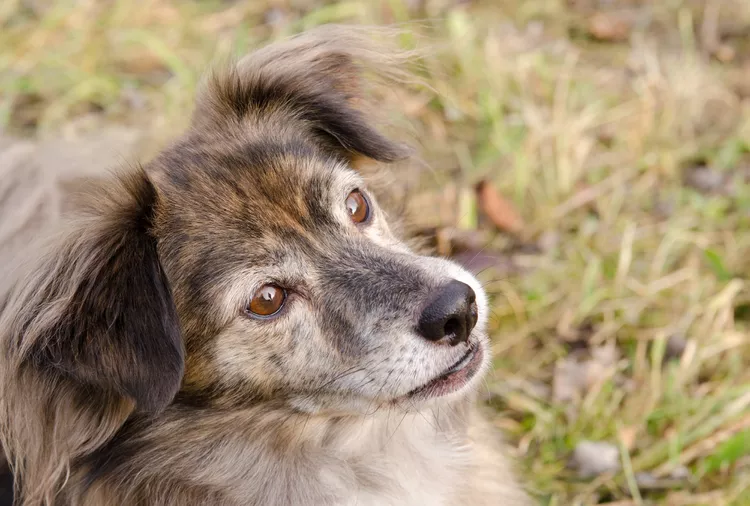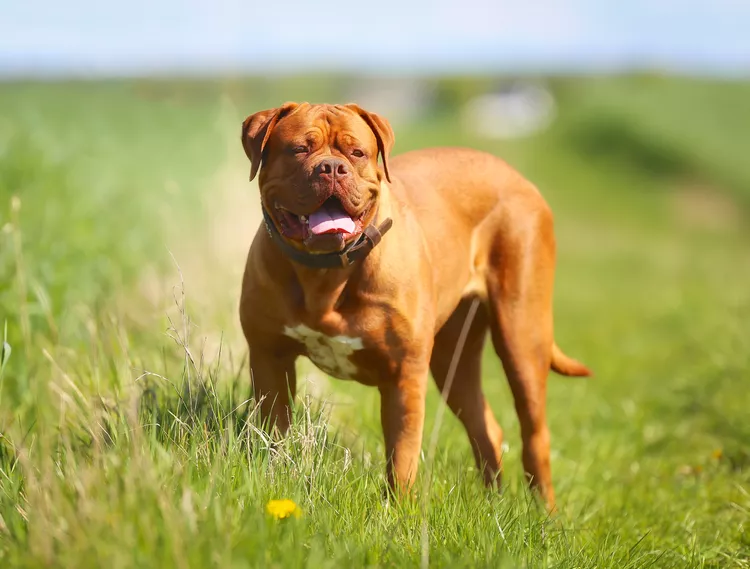
Almonds are a nutritious and satisfying snack for humans, but can dogs eat almonds, too? While almonds are not considered toxic to dogs and a couple likely won’t do any harm, these nuts should be kept away from your pup, says Antje Joslin, DVM.
Here are all the potential risks associated with giving almonds to dogs and what to do if your curious pooch manages to snag a mouthful.
Antje Joslin, DVM, is the co-owner of Tolleson Animal Clinic and Dogtopia veterinary consultant.
Unlike certain human foods like grapes and onions, almonds are not inherently toxic to dogs. However, they’re not a good treat for your pup for a few reasons:
Dogs can’t properly digest the proteins in almonds, Joslin says. While they can likely get away with eating a couple, too many can cause vomiting, diarrhea, gas, and loss of appetite.
The high fat content of almonds is another concern for dogs. Consumption of fatty foods can lead to gastric intestinal distress, causing discomfort, bloating, and potentially more severe complications, such as pancreatitis, Joslin says. Pancreatitis is a serious condition characterized by inflammation of the pancreas, which can result in vomiting, diarrhea, abdominal pain, and, in severe cases, organ failure.
If a dog swallows almonds without adequately chewing them, the almonds could become lodged in their throat or small intestine, leading to choking or an intestinal blockage, Joslin says. This risk is more common in smaller dog breeds, dogs with pre-existing dental issues, and dogs who tend to gulp their food down.
Almonds are often seasoned or flavored with salt, various spices, chocolate, or other additives to enhance their taste. These flavorings can be harmful or—in the case of garlic, onion, and chocolate—even toxic to dogs.
Almonds are not directly toxic to dogs and almond poisoning is uncommon. Still, pet parents need to be cautious and keep their dogs away from this nut. The amount of unflavored almonds it would take to cause problems for a dog depends on their size and individual sensitivity. If a Great Dane eats a few plain almonds, they likely won’t experience any negative effects. But the same amount of almonds could affect smaller breeds, like pugs and Chihuahuas.
Signs that your dog is being negatively affected by almonds may include:
You should contact your veterinarian ASAP or take your dog to an emergency vet clinic if:
“A veterinarian may induce vomiting if a large quantity of almonds was recently consumed,” says Joslin. They may also provide supportive care for gastrointestinal illness, such as IV fluids, antiemetics, and pain management, she adds. Never induce vomiting at home unless specifically instructed by your vet.
You can also call the ASPCA Animal Poison Control Center at (888) 426-4435 for advice. Note that a consultation fee may apply.
It’s best to avoid feeding almonds to dogs altogether due to the potential risks. However, if you still wish to offer almonds to your canine companion or they snag some from your snack bowl, it’s crucial to follow these guidelines to minimize the risk of adverse effects:
What about almond butter or almond milk? Almond butter carries the same risks as almonds (minus the choking risk) and should not be given to dogs (although a tiny taste here and there likely won't have a negative effect). Almond milk is safe to give occasionally in small amounts, Joslin says. But really, there's no need to purposefully share almonds with your dog.
Unlike humans, dogs don’t get nutritional benefits from almonds. Plus, they can cause your pup harm. Instead of almonds, it’s best to offer your dog treats that are safe and nutritious for them. Here are some options your dog will go nuts for:

75 Unisex Cat Names
Our gender neutral cat names perfect for your feline friend, with a diverse selection of fun and inclusive options to fit your pet's disposition.
Why Does My Cat Stink?
Is your cat stinky? Find out about the causes of bad odors in cats and when it is something to be concerned about. Learn how to help your stinky cat.
Signs of Rabies in Cats
Rabies is a fatal and contagious virus that can affect cats. Learn about the signs of rabies in cats and what to do about them.
Can Cats Eat Dog Food?
Can cats eat dog food? In small amounts, it's unlikely to be a problem, but long-term feeding of dog food to cats can cause health issues and malnutrition.
Exploring the Different Types of Pet-Friendly Beaches
Are you looking for pet-friendly beaches? Learn about the different types of pet-friendly beaches, their locations, and tips for visiting them with your pet.
Pulled Muscles in Dogs
A pulled muscle is one of the most common injuries seen in dogs. What can you do if your dog pulls a muscle and how can you prevent it?
Fibrosarcoma in Cats
Fibrosarcomas are potentially fatal soft tissue tumors that can occur in cats. Learn the causes, treatment, and prevention.
Alopecia in Dogs
Alopecia leads to hair loss and bald spots in dogs. Some breeds may be more at risk. Learn common causes, treatment, and prevention of dog alopecia.
Is Acetaminophen Safe for Dogs?
Acetaminophen is used by humans for pain and fever relief, but is it safe for dogs? Here's what you need to know before giving your dog acetaminophen.
Can Dogs Eat Almonds? Understanding the Risks and Guidelines
Can dogs eat almonds? While a couple likely won't hurt, it's best to avoid feeding your dog this nut. Learn the risks here.
Keeshond: Dog Breed Characteristics & Care
Learn about the keeshond dog, also known as the Dutch Barge Dog. This fluffy spitz breed was bred to guard, but also makes a friendly companion.
Is Rosemary Safe for Dogs?
Rosemary is used both for cooking and as a supplement with many reported health benefits in people, so you may be wondering if it is safe to give to your dog. Rosemary is considered non-toxic for dogs but with some caveats.
7 Hybrid Cats Breeds
Hybrid cat breeds can make appealing pets since they look more exotic than domestic house cats, but they aren't for everyone.
The Best White Cat Breeds to Keep as Pets
Several breeds can result in white cats with long or short hair. Find out the pros and cons of these white cat breeds.
11 Cute Pictures of Ragdoll Cats
Ragdoll cats are known for their beautiful coats and bright, blue eyes. Learn all about the breed, and check out some cute pictures here.
7 Reasons Why Your Cat Eats Paper, and How to Stop It
Is your cat eating paper? Learn why your cat is doing this, and find out how to put a stop to it.
Feist: Dog Breed Characteristics & Care
Feists are small, short-haired dogs developed to hunt squirrels and catch vermin. These high-energy, affectionate pooches make great companion animals.
Dogue de Bordeaux (French Mastiff): Dog Breed Characteristics & Care
Learn about the Dogue de Bordeaux, also called the French mastiff. Although large and muscular, they’re known for their calm and gentle personality.
How to Stop Your Dog From Fearing Men
Many dogs have a phobia of men. Learn how to help your dog overcome its fear through desensitization and training while keeping everyone safe.
Why Dogs Eat Poop and How to Stop Them
Is your dog eating poop? Some dogs do this because of stress or illness. Learn how to prevent stool eating, or coprophagia, in dogs.